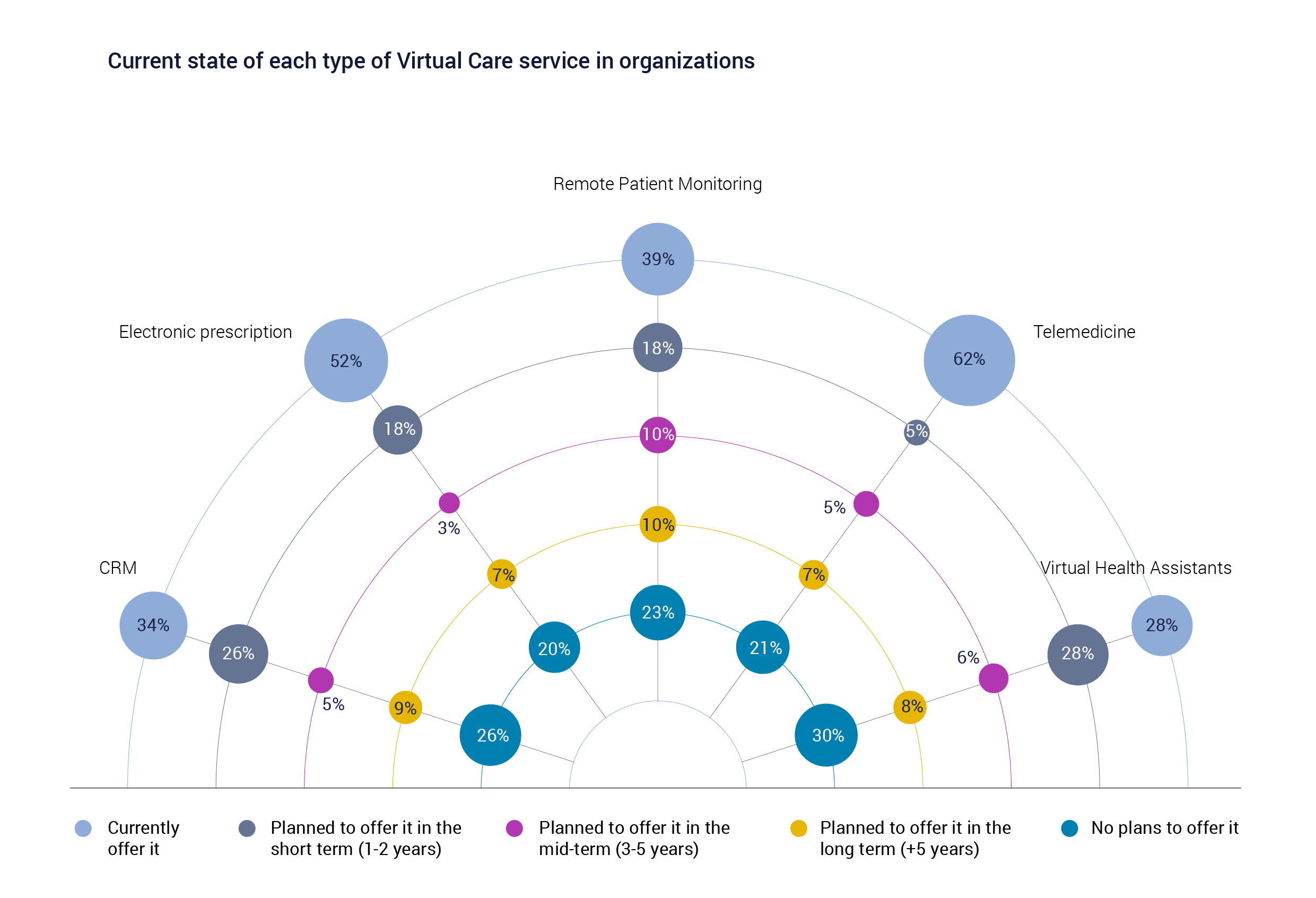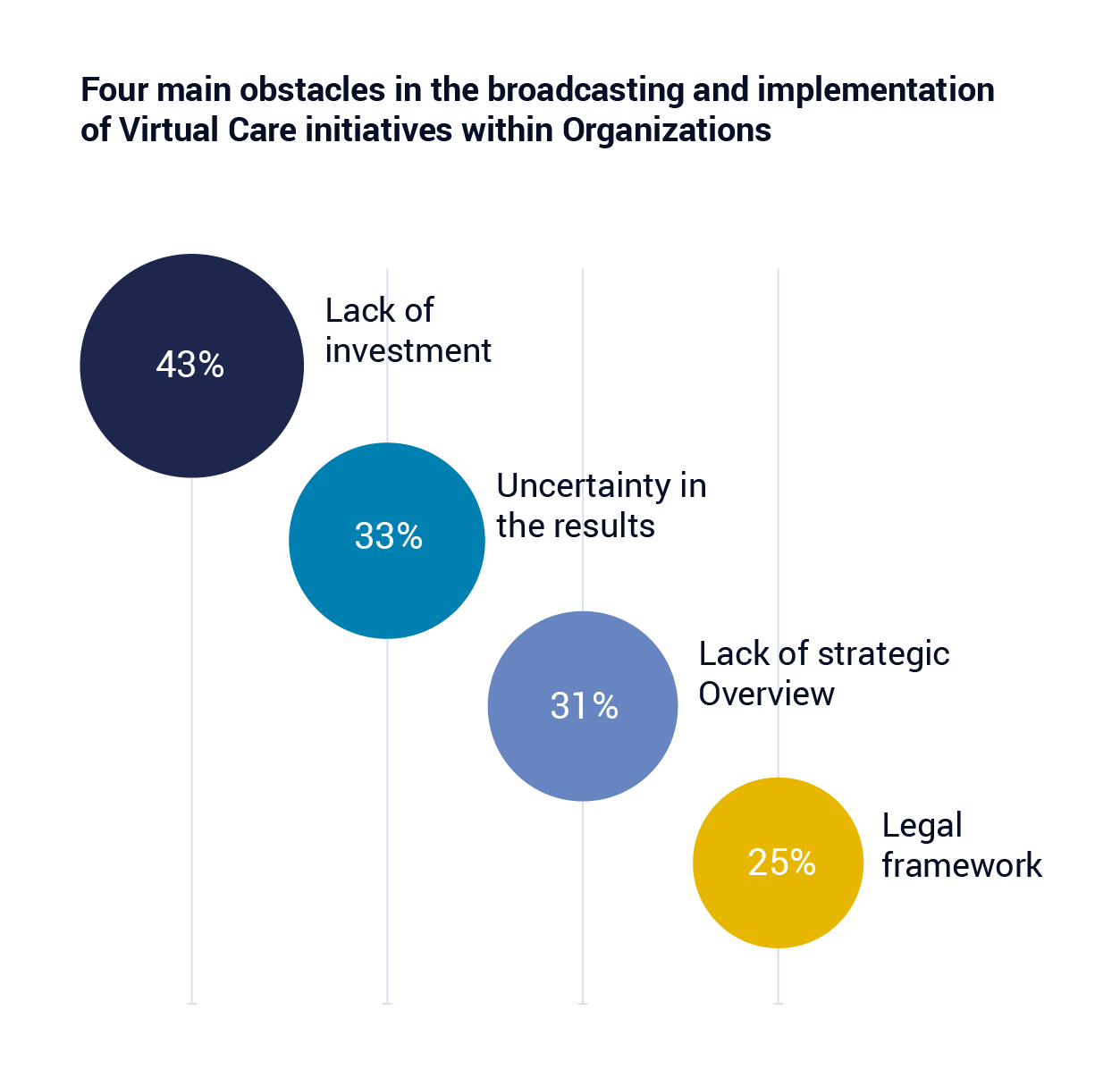
The virtual care is positively impacting the overall quality of medical care The implementation of emerging technologies is delivering more accurate and earlier diagnoses, which can make a difference in patients' lives.
Health
Perspectives on Virtual Care in America and Europe
Download the studyThe advancement of technology has transformed the healthcare industry. Discover how virtual care has been revolutionized in America and Europe.
Healthcare has become increasingly personalized and patient-centered. Beyond telemedicine and virtual consultations, technology and wearables have emerged as versatile and powerful allies in healthcare services. Our study analyzes how technologies such as artificial intelligence, cloud computing, blockchain, and mobile applications transform patient care and virtual care services in America and Europe.

The virtual care is positively impacting the overall quality of medical care The implementation of emerging technologies is delivering more accurate and earlier diagnoses, which can make a difference in patients' lives.
of virtual care organizations have reached the highest level of maturity in implementing cloud technology
of surveyed organizations use data analytics to support decision-making and improve medical care
have adopted telemedicine, with Mexico, Brazil, and the United States leading the implementation of telemedicine
of organizations use patient-centric mobile apps to improve patient's quality of life
as mobile apps improve ongoing communication and monitoring.
Download the studyThe privacy and security of patient medical data are crucial to building trust and maintaining a respectful and protective relationship with patients. Every step in the data communication chain must be protected with effective and up-to-date cybersecurity measures.
The report finds that regulatory barriers and resistance to change are two main challenges in adopting new technologies in healthcare. Interoperability, cybersecurity, and data analytics are key enablers in this transformation, followed by telemedicine and wearables, which continue to grow.

Twenty-five percent of organizations are concerned about regulatory issues. In contrast, 43% of organizations face challenges such as a lack of investment and the exclusion of vulnerable groups such as older people and people with disabilities, which we must approach inclusively and focus on making a positive impact. We also have to face the geographical and technological barriers.
Seeking new strategies to meet these challenges is the key to redefining healthcare and making virtual healthcare more accessible, inclusive, and equitable for everyone.